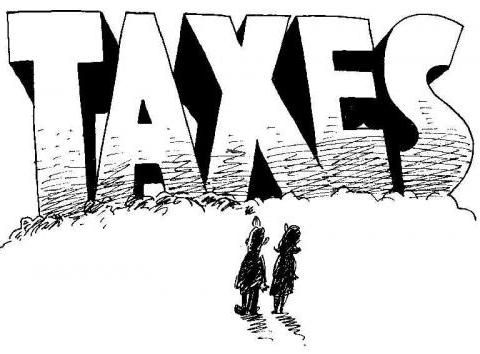
It’s income tax season! With the April 15 filing deadline right around the corner, it seems like a good time to answer some common tax questions.
Q: Where should I have my tax return prepared?
A: You have lots of options. One option is VITA. The IRS sponsors Volunteer Income Tax Assistance (VITA) sites all over the country. They prepare income tax returns for free if the income on the return totals less than $54,000.
Q: Do I need to put all my income on my tax return?
A: The law requires that you report all your income on your tax return. Before you can leave it off of your return or claim that it is not taxable, there must be a specific exemption in the tax law. By signing the return, you are swearing that the return is complete and correct. You risk penalties if you leave something off that you shouldn’t have.
Q: When can I file my tax return?
A: Individuals file their annual tax returns in January through April 15 for the calendar year that just ended. If you have missed the deadline, still file as soon as possible, even if it is many years later. To claim and receive a refund, however, the return must be filed by April 15 of the third year after the tax year ends.
Q: What deductions are available to me?
A: The tax law is full of deductions and credits that you can take to reduce the income that you are required to pay tax on. It’s important that you keep good records of your work expenses if you are self-employed. Acquaint yourself with what might be deductible in your situation.
Q: What filing status should I use if I am married?
A: To file a married tax return in Arkansas, you must have a marriage license. Common law marriages do not qualify. If you are married, you can file jointly with your spouse or separately.
Q: Who can I claim as a dependent?
A: The law has very specific, detailed rules for who you can claim as a dependent. Make sure that you understand all of the rules and how they apply to your situation before you mistakenly claim someone who actually doesn’t qualify.
Q: Who can claim the Earned Income Tax Credit?
A: Many taxpayers are eligible to claim the EITC, either with or without qualifying children. But, the EITC rules are amongst the most complex in individual income tax law. Make sure that you apply the rules carefully, because there are penalties for claiming the EITC when you are not entitled.
Q: Do I have to pay the entire balance due when I receive a bill from the IRS?
A: No, the IRS has collection alternatives, including monthly payment plans. The most important thing to do: respond to the notices you receive.
Q: What should I do if I receive a notice from the IRS?
A: If you receive a notice, read it carefully. If you don’t understand it, get an expert to help you understand what you need to do or what the IRS is going to do. Sometimes you can also find help on www.irs.gov, so try there first.
Q: What should I do if I get a call from someone who says they are the IRS?
A: The IRS does not telephone delinquent taxpayers; they send notices. These phone calls are scams, and they often make threatening statements. Hang up or collect information to report to the IRS.
Q: What does health insurance have to do with income tax?
A: The Affordable Care Act requires almost everyone to have health insurance. If you choose not to have health insurance, you may face a tax penalty. Every year you are required to report your health insurance on your income tax return. You need to use the information from your Form 1095 to complete your tax return.
Q: What should I do if I think that someone has stolen my identity?
A: Identity thieves can use your Social Security number in two ways:
1. An identity thief can use your SSN and name to get a job, which will result in wages reported to Social Security and to the IRS in your name;
2. An identity thief can use your SSN and name to file an income tax return to get a refund from the IRS.
If you find out that someone else has used your SSN, file your valid return anyways and submit an identity theft affidavit to the IRS.




